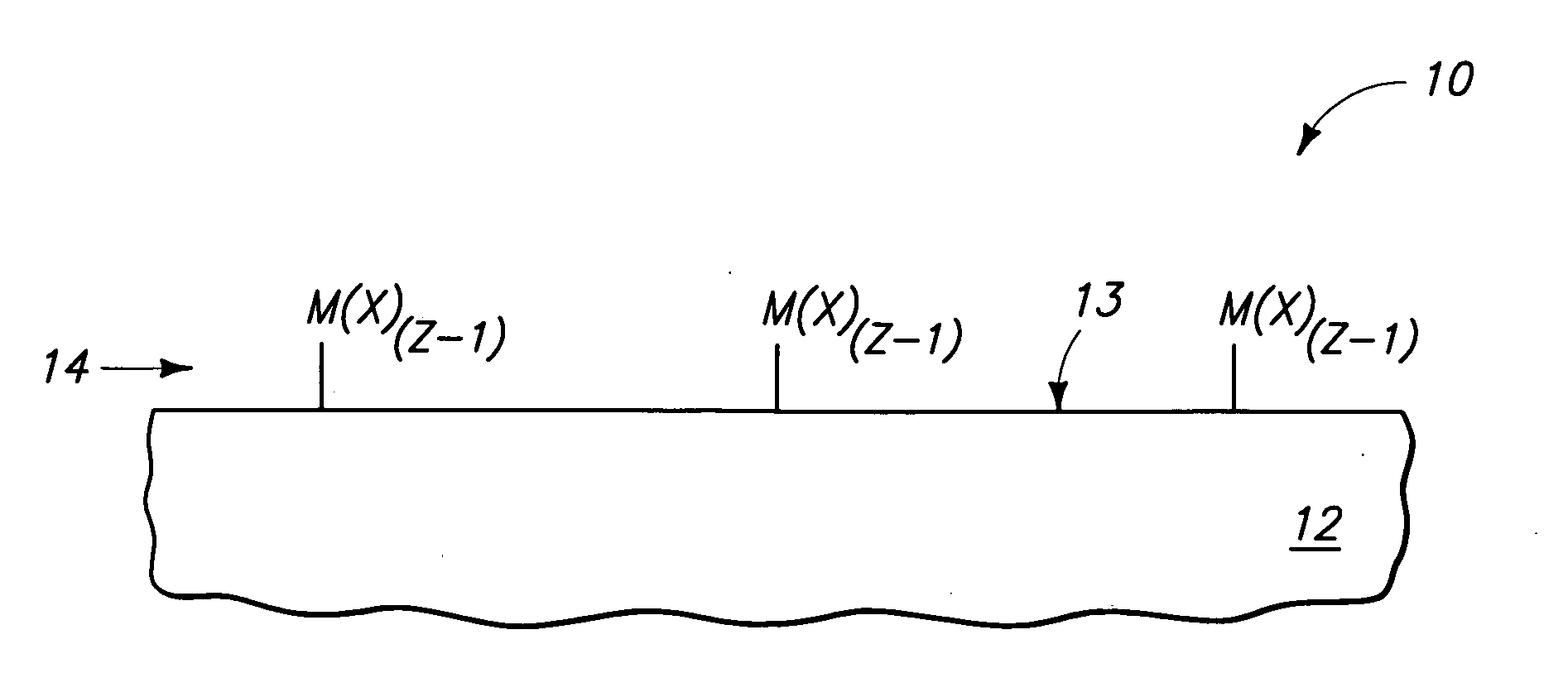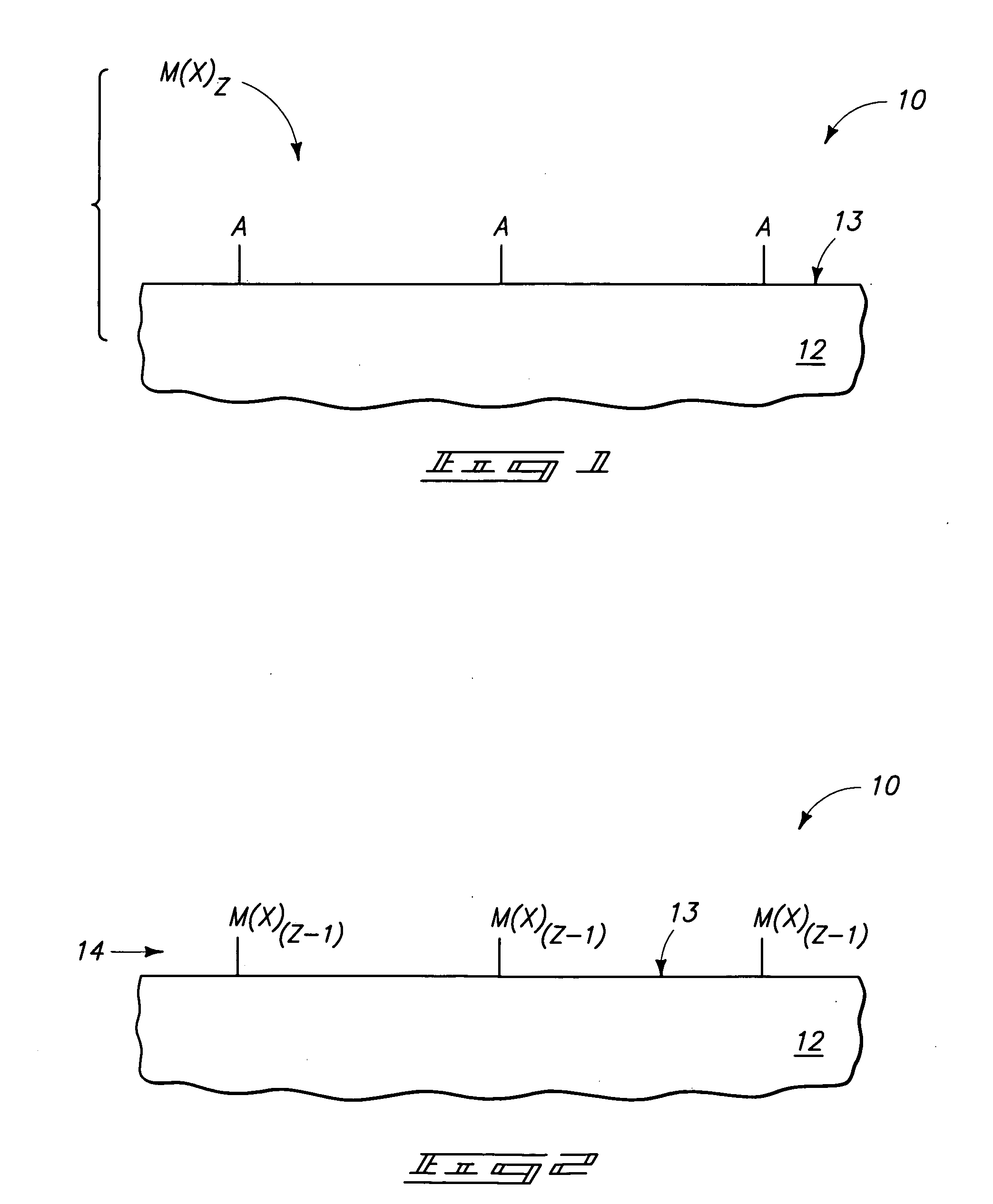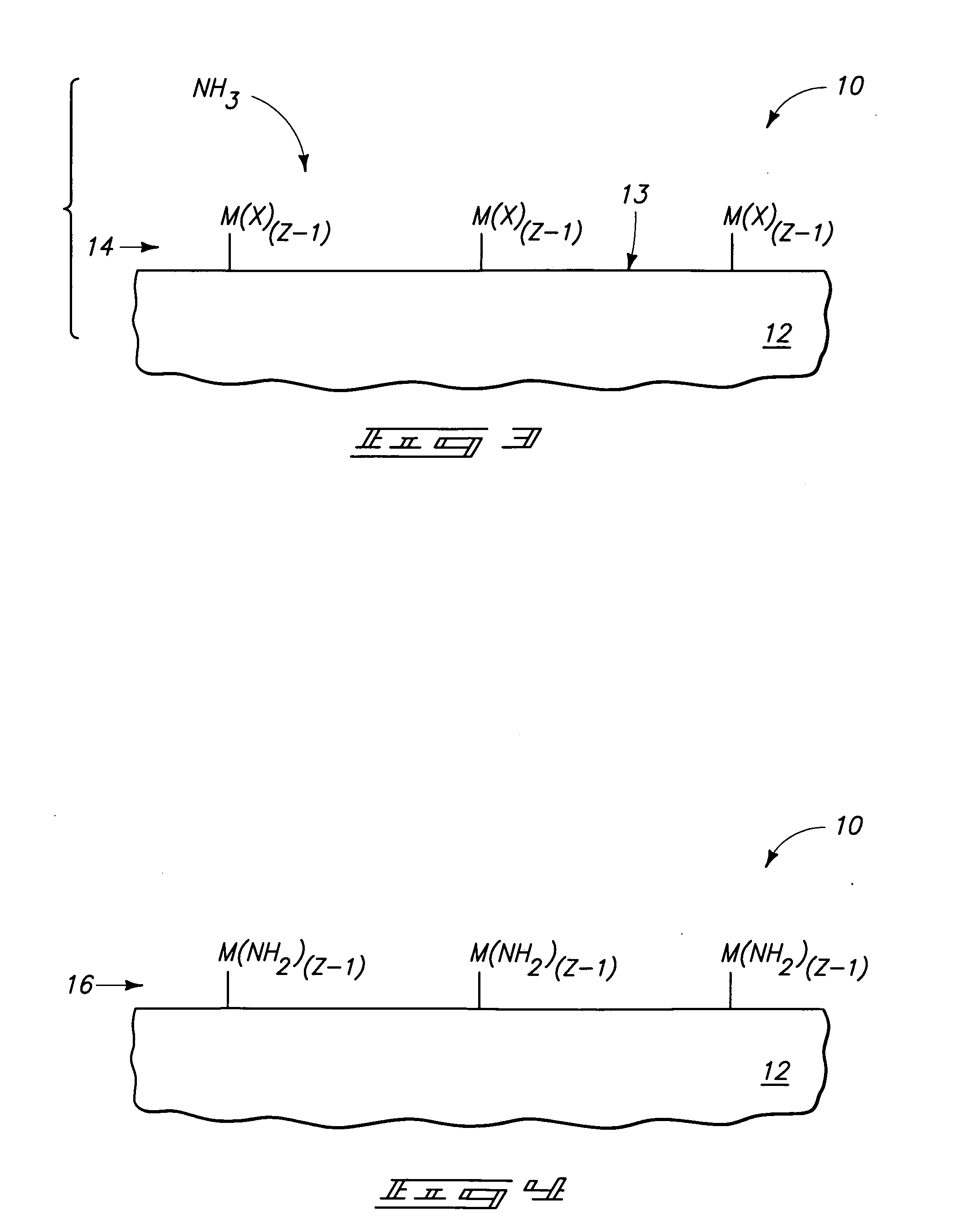Methods of forming metal oxide and semimetal oxide
- Summary
- Abstract
- Description
- Claims
- Application Information
AI Technical Summary
Benefits of technology
Problems solved by technology
Method used
Image
Examples
Embodiment Construction
[0028] This disclosure of the invention is submitted in furtherance of the constitutional purposes of the U.S. Patent Laws “to promote the progress of science and useful arts” (Article 1, Section 8).
[0029] The invention includes methods of forming metal oxide in which at least one metal-and-halogen-containing material is formed over a semiconductor substrate surface, and then subjected to aminolysis followed by oxidation to convert the material to metal oxide. One of the reasons that water is utilized as an oxidant in prior art processes of converting metal chloride to metal oxide is that the metal chloride cannot be readily oxidized with oxidants other than water. One aspect of the present invention is a recognition that metal chlorides which are susceptible to hydrolysis are often also susceptible to aminolysis. Thus, aminolysis can be utilized to convert the metal chlorides to metal amines, which can then be oxidized with non-water oxidants to form metal oxides. The invention al...
PUM
| Property | Measurement | Unit |
|---|---|---|
| Exposure limit | aaaaa | aaaaa |
Abstract
Description
Claims
Application Information
 Login to View More
Login to View More - R&D
- Intellectual Property
- Life Sciences
- Materials
- Tech Scout
- Unparalleled Data Quality
- Higher Quality Content
- 60% Fewer Hallucinations
Browse by: Latest US Patents, China's latest patents, Technical Efficacy Thesaurus, Application Domain, Technology Topic, Popular Technical Reports.
© 2025 PatSnap. All rights reserved.Legal|Privacy policy|Modern Slavery Act Transparency Statement|Sitemap|About US| Contact US: help@patsnap.com



